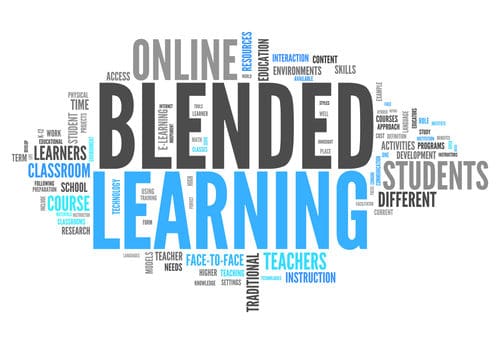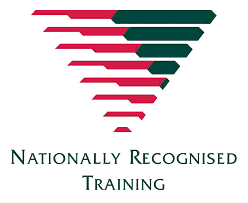100% Online – This unit can be completed 100% online
Self-paced online study
BSBLDR301
Support effective workplace relationships

What you will learn by studying this unit
This unit describes the skills and knowledge required to gather information and maintain effective relationships and networks, with particular regard to communication and representation.
This unit applies to individuals who use leadership skills including motivation, mentoring and coaching to develop efficient, effective and unified teams and facilitate communication between team members and management of the organisation.
No licensing, legislative or certification requirements apply to this unit at the time of publication.
These units are common units in the paramedical and general health care sector training and education courses.
All our units are written by us and have a paramedic/prehospital care focus
Paramedical EMT First Responder Courses and Learning Pathway to Becoming a Paramedic
HLT21020 Certificate II in Medical Service First Response
HLT31220 Certificate III in Basic Health Care
HLT31120 Certificate III in Non-Emergency Patient Transport (NEPT)
HLT41120 Certificate IV in Health Care (First responder EMT Medic)
HLT51020 Diploma of Emergency Health Care (Paramedical Training)
Health & Administration Units
HLT37315 Certificate III in Health Administration
HLT47315 Certificate IV in Health Administration
HLT37215 Certificate III in Pathology Collection
Nursing & Community Services Units
CHC43115 Certificate IV in Disability
CHC43015 Certificate IV in Ageing Support
HLT51020 Diploma of Nursing
Elements and Performance Criteria for this Paramedic/Medic unit
What does this mean? Elements, which tell me what I should be able to do if I am competent in this unit of a course; and Performance Criteria, which tell me how I can show that I am competent in the individual tasks or activities to the required standards
|
ELEMENT |
PERFORMANCE CRITERIA |
|
Elements describe the essential outcomes. |
Performance criteria describe the performance needed to demonstrate achievement of the element. |
|
1 Seek, receive and communicate information and ideas |
1.1 Collect information associated with the achievement of work responsibilities from appropriate sources 1.2 Communicate ideas and information to diverse audiences in an appropriate and sensitive manner 1.3 Seek contributions from internal and external sources to develop and refine new ideas and approaches in accordance with organisational processes 1.4 Facilitate consultation processes to allow employees to contribute to issues related to their work, and promptly communicate outcomes of consultation to the work team 1.5 Promptly deal with and resolve issues raised, or refer them to relevant personnel |
|
2 Encourage trust and confidence |
2.1 Treat people with integrity, respect and empathy 2.2 Encourage effective relationships within the framework of the organisation’s social, ethical and business standards 2.3 Gain and maintain the trust and confidence of colleagues, customers and suppliers through competent performance 2.4 Adjust interpersonal styles and methods in relation to the organisation’s social and cultural environment |
|
3 Identify and use networks and relationships |
3.1 Identify and utilise workplace networks to help build relationships 3.2 Identify and describe the value and benefits of networks and other work relationships for the team and the organisation |
|
4 Contribute to positive outcomes |
4.1 Identify difficulties and take action to rectify the situation within own level of responsibility according to organisational and legal requirements 4.2 Support colleagues in resolving work difficulties 4.3 Regularly review workplace outcomes and implement improvements in consultation with relevant personnel 4.4 Identify and resolve poor work performance within own level of responsibility and according to organisational policies 4.5 Deal constructively with conflict, within the organisation’s established processes |
Performance Evidence for BSBLDR301 Support effective workplace relationships
Evidence of the ability to:
- access and analyse information to achieve planned outcomes
- apply techniques for resolving problems and conflicts and dealing with poor performance within organisational and legislative requirements
- review and improve workplace outcomes in consultation with relevant personnel
- adjust interpersonal style and communications to respond to cultural and social diversity
- apply relationship management and communication skills with a range of people that:
- demonstrate integrity, respect, empathy and cultural sensitivity and promote trust
- forge effective relationships with internal and/or external people and help to maintain these networks
- encourage participation and foster contribution of and respect for ideas and feedback
- provide support to colleagues to resolve difficulties.
- communicate ideas and information to diverse audiences
- develop networks and build team relationships.
Note: If a specific volume or frequency is not stated, then evidence must be provided at least once.
Knowledge Evidence, BSBLDR301 Support effective workplace relationships
To complete the unit requirements safely and effectively, the individual must:
- give examples of how work relationships and the cultural and social environment can support or hinder achieving planned outcomes
- explain techniques for developing positive work relationships and building trust and confidence in a team
- identify relevant legislation from all levels of government that affects business operation
- describe a range of methods and techniques for communicating information and ideas to a range of stakeholders
- outline problems solving methods
- explain methods to resolve workplace conflict
- explain methods to manage poor work performance
- explain how to monitor, analyse and introduce ways to improve work relationships.
Assessment Conditions for BSBLDR301 Support effective workplace relationships
Assessment must be conducted in a safe environment where evidence gathered demonstrates consistent performance of typical activities experienced in the management field of work and include access to:
- relevant legislation and regulations
- relevant workplace documentation and resources
- case studies and, where possible, real situations
- interaction with others.
Assessors must satisfy NVR/AQTF assessor requirements.
Pre Hospital Care and Health Care Jobs and Career Choices
Jobs and careers in the growing health sector are expanding and rapidly changing with advances in patient care and management. These units can be used across many roles in the health and community sector. Develop a career plan and have research our units and qualifications to see what might fit with your plan. For assistance, Contact us



